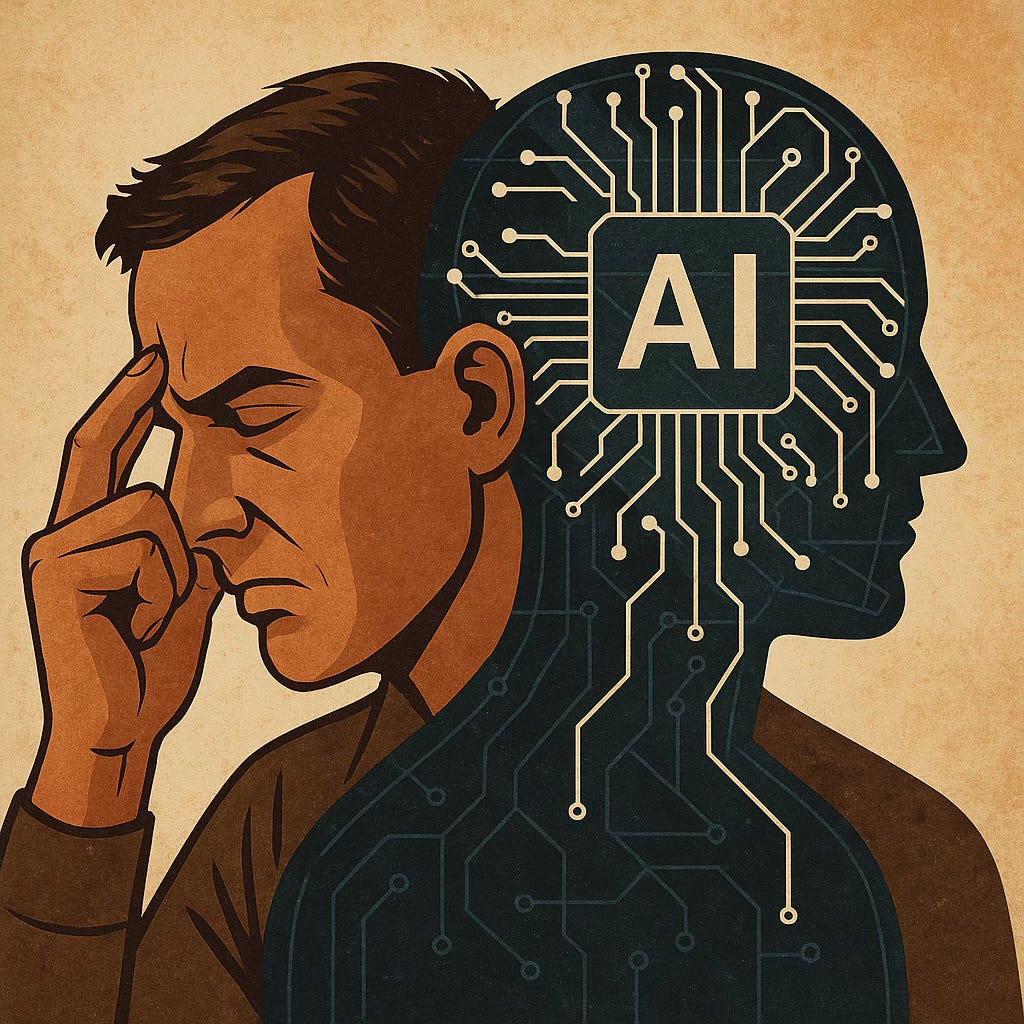How AI Is Eroding Critical Thought
AI isn’t just reshaping our workflows, it may be rewiring our brains. As tools like ChatGPT become ubiquitous, mounting evidence suggests a growing risk to human cognition, particularly our capacity for critical thought.
The Erosion of Thinking Skills
One of the clearest dangers is cognitive offloading: handing over memory, reasoning, or writing tasks to machines. Studies show that frequent users of AI tools, especially younger people, experience measurable declines in their ability to analyze and problem-solve independently. Brain imaging research has even found decreased neural activity in areas linked to memory and creativity when students rely on ChatGPT to produce essays. The pattern is simple but alarming: the more we outsource our minds, the less those “muscles” stay active.
A related problem is the illusion of understanding. Because AI can quickly provide polished answers, users often mistake fluency for comprehension. It feels like we “know” something because we’ve read an elegant explanation – but real knowledge requires grappling, questioning, and sometimes struggling. Without those steps, our grasp of complex issues becomes shallow, leaving us vulnerable to errors, manipulation, and misinformation.
The social dimension compounds these risks. AI-powered systems can reinforce confirmation bias by feeding us perspectives that match our prior views. Instead of expanding horizons, this personalization subtly narrows them, making our intellectual environment more homogeneous. Over time, the ability to weigh conflicting perspectives and engage in open-ended critical debate can erode.
What We Can Do About It
The first step is mindful integration. AI should be treated as a partner to question, not a crutch to lean on. That means actively challenging its output, comparing it with other sources, and using it to spark deeper inquiry rather than replace it.
Education must also preserve high-order skills. Teachers and institutions can design assignments that emphasize analysis, synthesis, and creativity – tasks that resist automation. Encouraging deep reading, debate, and original writing ensures students build mental endurance rather than relying on machine shortcuts.
Finally, individuals and societies need to commit to active engagement. That can mean simple habits: journaling, solving problems by hand, or debating ideas without digital aids. At a larger scale, we need policies that promote media literacy and educational frameworks that balance technological adoption with cognitive resilience. The goal isn’t to reject AI, but to make sure it sharpens rather than dulls our minds.
Final Thought
AI’s benefits are undeniable: efficiency, insight, innovation. But as critics warn, the more we let machines think for us, the more we risk diminishing our own thinking. The challenge of this decade will not be whether we use AI, but whether we still know how to think deeply in its shadow.
